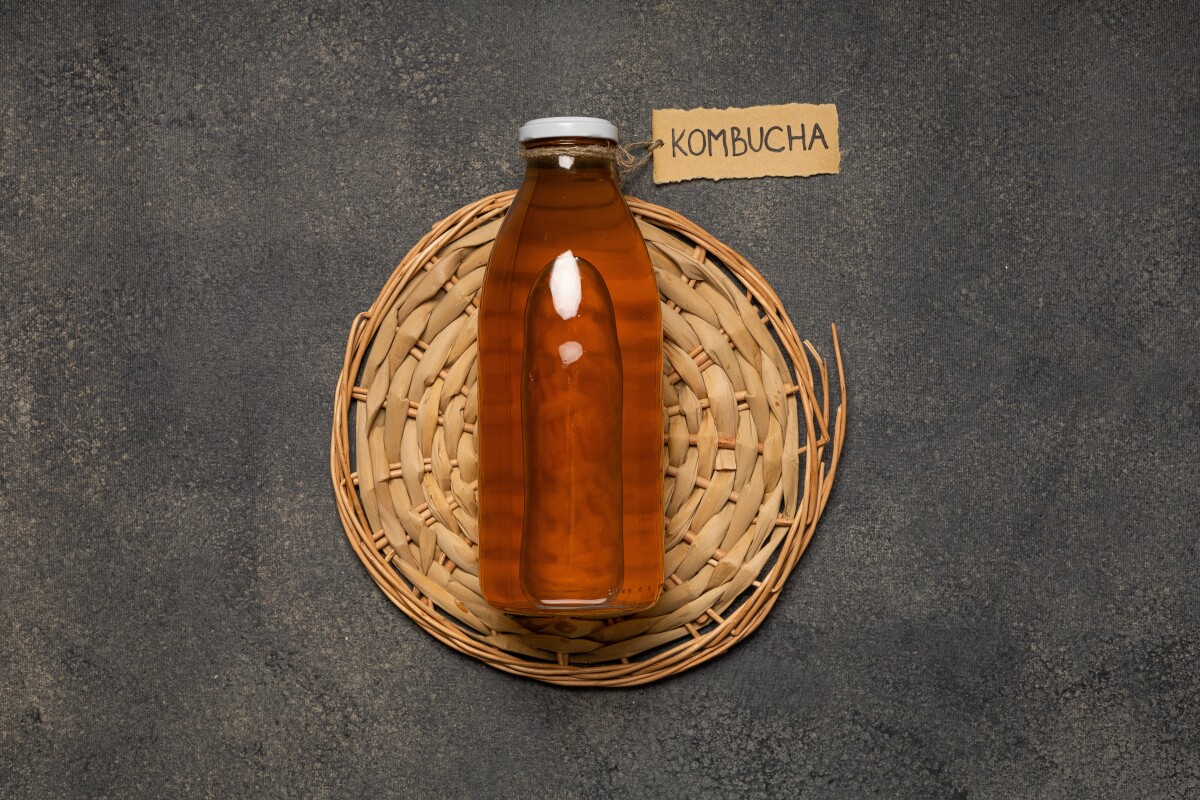
turns out it is a probiotic that emulates the effects of fasting and that is good. I can work with that now.
I was wondering is the product had a real benefit pathway and thisvworks. Now we n a useful deliverable to test. That means a viable extract.
My elixer is extract based and this may well fit in.
Kombucha microbes break down fat stores like fasting – without the effort
April 03, 2024
The microbes that make up kombucha's SCOBY have a surprising effect on human cells
It may not be to everyone's taste, but kombucha tea may be able to deliver the benefits of fasting, without the hardest part – the fasting itself. Researchers found that when the yeasts and bacteria from the fermented, sweetened tea colonized the gut, they altered fat metabolism, without any other dietary changes, resulting in lower fat stores.
At the center of these findings is the flora found in kombucha tea's SCOBY (Symbiotic Cultures of Bacteria and Yeasts), the gelatinous starter, rich in microbes, found floating near the surface of the fermented liquid. The probiotic microbes, including species of Acetobacter, Lactobacillus and Komagataeibacter genera, have previously been linked to a range of positive health benefits including lowering blood pressure.
Now, researchers from the University of North Carolina at Chapel Hill have discovered how, in Caenorhabditis elegans, kombucha's microbes directly influence intestinal gene expression, particularly in those linked to fat metabolism. The introduced flora boosted the proteins needed to break down fat, while conversely they helped dial down the formation of proteins that help build the lipid (or fat) compounds known as triglycerides.
While triglycerides are the most common forms of fat circulating in the human body, and play an important role in energy storage and release, excess calorie intake can result in high levels of these lipids and drive comorbidities of obesity such as heart disease.
The changes in fat metabolism – the way specific proteins were dialed up and down, ultimately reducing fat stores – produced a cellular effect much like that of fasting. Here, however, no reduction or limiting of food intake was required.
"We were surprised to find that animals consuming a diet consisting of the probiotic microbes found in kombucha tea displayed reduced fat accumulation, lower triglyceride levels, and smaller lipid droplets – an organelle that stores the cell's lipids – when compared to other diets," the researchers noted. "These findings suggest that the microbes in kombucha tea trigger a 'fasting-like' state in the host even in the presence of sufficient nutrients."
While the study was conducted on the model worm C. elegans – a microscopic nematode that, admittedly, doesn't have quite the same fat-storage concerns that we do – the researchers believe the kombucha metabolic effects will likely be observed in humans.
Nonetheless, it adds weight – so to speak – to the case for kombucha, which most recently was linked to positive blood sugar outcomes for those with type 2 diabetes. Other studies have suggested the ancient fermented drink shows great potential as an inflammation-reducing antioxidant and an antibacterial. On the flip side, many studies have also failed to find significant health benefits of kombucha.
As for the current research, the scientists note that more work is needed in order to see if the 'fasting-like' effects shown in the lab can translate to people trying to lose or maintain their weight.
"We want to make it explicitly clear that we are not making judgements, conclusions or claims regarding kombucha tea’s use in any human medical practices or its recreational consumption," the researchers noted in the study. "Our findings do, however, offer exciting insights into possible mechanisms of kombucha tea microbe-mediated host metabolic reprogramming and lays the foundation for future studies in mammalian model systems that could deconvolute the biological underpinnings of kombucha tea’s potential health benefits."
The study was published in the journal PLOS Genetics.
No comments:
Post a Comment